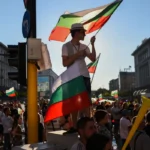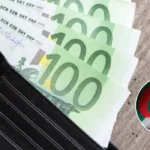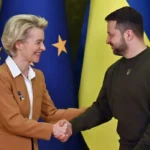Can Catalan become the 25th official language of the European Union? This is the question we are asking ourselves, because domestic politics is currently entering into European debates. And it is a subject of discussion which many diplomats and European officials would have done well without. Spain wants to include Catalan as a priority, but also Basque and Galician. And the Spanish government, which chairs the Council of the Union for six months and which, as such, has control of the agenda, has therefore put the proposal on the menu of a meeting of European ministers this week and put a maximum pressure on its partners. Essentially for an internal political issue.
Imposing the use of Catalan, particularly in Brussels, is one of the demands of the separatists to provide their political support to the socialist Pedro Sanchez, who is trying to be reappointed as head of government. If they do not support his candidacy for a second term, it will likely lead to new elections. Pedro Sanchez puts pressure on his counterparts. He sent them his request in mid-August and would have liked a vote last Tuesday, September 19, during the meeting of European Affairs ministers.
A polite, but cautious welcome
And the Spanish Minister of European Affairs had sharpened his arguments. It was José Manuel Alvarez who stuck to it, arguing that this request is not recent. It dates from 2005. He also insisted on the fact that these languages are far from being minorities: ten million people speak Catalan, and that they are already officially recognized by the Spanish Constitution. As of this week, finally, these languages have been authorized for parliamentary work in Madrid.
But in European capitals, we still remain doubtful. A polite welcome, with the idea of not embarrassing Pedro Sanchez. No member state therefore vetoed Spain. “We must study this request very carefully,” said the Croatian minister. We must “analyze the legal, financial and practical impact,” added his Slovak counterpart. The Swede recalled that there are many minority languages in Europe, no less than six in Sweden, without it having official status. In reality, no one wants to open a Pandora’s box. The Bretons in France or the Corsicans could take action.
And behind the scenes there is also the question of the cost of such a measure. The status of official language obliges the EU to translate these documents into all these languages and to provide the necessary interpreters for the negotiation meetings. Madrid said it wanted to agree to pay the additional cost. This shows the importance of the subject for the government. But in other capitals, we will undoubtedly play for time and let the discussions drag on.
This article is originally published on francetvinfo.fr







